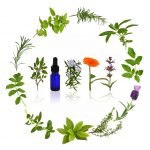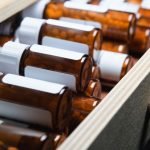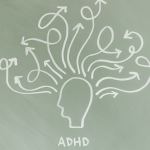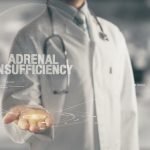Arginine and Citrulline: A Review of Their Safety and Efficacy for Erectile Dysfunction & Beyond
Jeremy Appleton, ND
Arginine is a semi-essential amino acid involved in numerous biochemical pathways in the human body. It has functions in the immune system, and is also required for ammonia metabolism and the secretion of certain hormones. Arginine is well-known as a biochemical precursor to nitric oxide (NO), which is a functional part of endothelial-derived relaxing factor (EDRF). Because of arginine’s NO-stimulating and other effects, it is used as both a drug and supplement for several cardiovascular indications, most notably angina pectoris, congestive heart failure, hypertension, coronary heart disease, preeclampsia, intermittent claudication, and erectile dysfunction (ED). In addition, arginine has been studied in the treatment of HIV/AIDS, athletic performance, burns and trauma, cancer, diabetes and syndrome X (metabolic syndrome), gastrointestinal diseases, male and female infertility, interstitial cystitis, immunomodulation, and senile dementia.1 When taken in conjunction with omega-3 fatty acids, supplemental arginine has been shown to promote weight gain in patients with HIV.2
Citrulline was first identified and isolated from the juice of the watermelon (Citrullus vulgaris).3 This amino acid initially attracted little interest because it is a non-protein amino acid that was considered solely an intermediate metabolite in the formation of urea.4,5 However, newer research has accumulated because of its unusual metabolism.6 Citrulline is a non-essential amino acid, donor of arginine and NO, and (similar to glutamine) a conditionally-essential amino acid in intestinal pathology. Its major pharmacological actions include: antioxidant; vasodilatory; decreasing leukocyte migration; restoring nitrogen balance and increasing muscle protein content as well as muscle protein synthesis; improving endothelial dysfunction; increasing argininosuccinate synthase expression in cancer cells; and preserving anti-inflammatory mediator response (in sepsis).7
Metabolism
In mammals, arginine is synthesized from glutamine in a multi-step metabolic conversion process.8 In adults, most endogenous arginine is derived from citrulline, a by-product of glutamine metabolism in the gut or liver. Citrulline is released into the circulation and taken up primarily by the kidney for conversion into arginine.9 Oral arginine taken as a supplement is readily absorbed.10 About half of ingested arginine is rapidly converted in the body to ornithine, primarily by the enzyme arginase.11 Besides its best-known role as a precursor for NO, arginine is also a precursor for the synthesis of proteins, urea, creatine, and agmatine.12
Citrulline acts as an arginine precursor in NO synthesis13 and plays an important part in NO metabolism and regulation.14 Citrulline possesses a highly specific metabolism that bypasses splanchnic extraction because it is not used by the intestine or taken up by the liver. It may be a conditionally-essential amino acid in situations where intestinal function is compromised. In fact, citrulline is thought to play a pivotal role in maintaining protein homeostasis, and should be considered in nutritional strategies for malnourished patients with compromised intestinal function.4
Clinical Uses of Arginine
Numerous studies have shown that acute and chronic supplemental L-arginine improves endothelial nitric oxide bioactivity.15 Arginine supplementation has been effective in the treatment of angina in some, but not all, clinical trials. In an uncontrolled trial, 7 of 10 people with intractable angina improved dramatically after taking 9 g of arginine per day for 3 months.16 It has been shown to improve exercise efficiency and exercise tolerance in healthy humans.17 Administration of L-arginine and L-citrulline to patients with heart failure improved right ventricular function by increasing right ventricular ejection fraction, and probably also by decreasing systolic pulmonary artery pressure.18 A week of treatment with 2.64 g of lysine and 2.64 g of arginine per day reduced trait and stress-induced state anxiety, as well as basal cortisol levels in healthy humans with stress and anxiety.19 Arginine may be useful in patients with ischemic myocardial syndromes. Administration of 3 g per day for 15 days resulted in increased activity of superoxide dismutase (SOD) and an increase in the levels of total thiols (T-SH) and ascorbic acid with concomitant decrease in lipid peroxidation, carbonyl content, serum cholesterol, and the activity of the pro-oxidant enzyme, xanthine oxidase.20 Arginine appears to upregulate immune function and reduce the incidence of post-operative infection. Supplementation with 30 g per day for 3 days significantly enhanced natural killer (NK) cell activity, lymphokine-activated killer cell cytotoxicity, and lymphocyte mitogenic reactivity in patients with locally advanced breast cancer.21
Arginine in Erectile Dysfunction
Most researchers using arginine for erectile dysfunction have studied it in combination with other ingredients, such as pycnogenol,22-25 yohimbine,26,27 or adenosine monophosphate.28 Only a few studies have looked at arginine by itself for erectile function. In a small, uncontrolled trial, men were given 2.8 g of arginine per day for 2 weeks. Forty percent of the men in the treatment group experienced improvement, compared to none in the placebo group.29 In a double-blind trial, men with erectile concerns took 5 g of arginine per day or a matching placebo for 6 weeks.30 Nine of 29 (31%) patients taking L-arginine reported a significant subjective improvement in sexual function. All 9 patients treated with L-arginine and who had subjectively improved sexual performance had an initially low urinary NO, and this level had doubled at the end of the study. Men given just 500 mg TID in another trial experienced no better improvement than placebo.31 These results suggest that higher doses may be needed, and that men with lower NO levels might benefit the most.
Citrulline Indications
Indications for citrulline supplementation include malnutrition associated with intestinal failure, aging and sarcopenia, and cardiovascular conditions benefitting from enhanced NO production, including ED.6 In fact, studies of healthy volunteers show that oral citrulline supplementation raises blood arginine levels more effectively than arginine supplementation itself.32 Other indications include sickle cell anemia, hypertension, hyperlipidemia, diabetes, immunomodulation, arginase-associated T cell dysfunction, cancer, Alzheimer’s disease, improving aerobic function and energy production, urea cycle disorders, some intestinal pathologies, and as an antioxidant.7
Citrulline in Erectile Dysfunction
In a single blind, short-term study of men with ED (erection hardness score of 3 out of 4), L-citrulline was given at dose of 1.5 g per day for a month. It was concluded that citrulline was safe and psychologically well-accepted, and reported as very satisfying to the patients. Although less effective than phosphodiesterase type-5 enzyme inhibitors, L-citrulline supplementation was associated with an improvement in erection hardness score, from 3 to 4.33
Safety
Significant adverse effects have not been observed with arginine supplementation; however, long-term studies are needed to confirm its apparent safety. People with renal failure or hepatic disease may be unable to appropriately metabolize and excrete supplemental arginine and should be closely monitored when taking arginine supplements.
It has been postulated, on the basis of older in vitro data34 and anecdotal reporting, that arginine supplementation is contraindicated in persons with herpes infections (ie, cold sores, genital herpes). The assumption is that arginine might stimulate replication of the virus and/or provoke an outbreak; however, this caution has not been validated by controlled clinical trials.
Bronchoconstriction is reportedly inhibited by the formation of NO in the airways of asthmatic patients, and a bronchoprotective effect of NO in asthma has been proposed.35 Specifically, airway obstruction in asthma might be associated with endogenous NO deficiency caused by limited availability of NO synthase substrate (ie, arginine).
However, oral L-arginine (50 mg/kg body weight) in patients with asthma triggered by a histamine challenge produced only a marginal, statistically insignificant improvement of airway hyper-responsiveness to histamine.36 In fact, it is unclear whether NO acts as a protective or a stimulatory factor in airway hyper-responsiveness. Current data suggest modulating NO synthesis by giving oral L-arginine supplements has no significant benefit on airway response to exercise in asthmatic subjects,37 and may even induce bronchoconstriction when nebulized and inhaled.38 Until more is known, arginine should not be used to treat asthma.
Since polyamines act as growth factors for cancers, and arginine may stimulate polyamine synthesis, chronic administration of arginine in cancer patients should probably be avoided until information arises regarding the safety of this practice.
Citrulline is generally recognized as safe (GRAS) for oral use.14 In contrast to arginine or ornithine, which can induce gastrointestinal side effects at high doses (ie, >10 g in 1 bolus),39 citrulline is well tolerated.40-44 This could be explained by the rapid saturation of the intestinal absorption of arginine and ornithine inducing osmotic diarrhea at high loads.14,32 This difference between these amino acids suggests that the intestinal absorption of citrulline is not a limiting step in citrulline bioavailability, even at high citrulline loads.
Short-term administration of citrulline is safe and well tolerated. No adverse effects were observed in healthy subjects that were given different loading doses of 2 g, 5 g, 10 g or 15 g.40 There is a dearth of reliable scientific data regarding its use in pregnancy and lactation.
 Jeremy Appleton, ND, has been a well-known writer and speaker on topics in natural medicine for nearly 20 years. A graduate of Reed College and the National College of Natural Medicine (NCNM), Dr Appleton has been on the faculty at NCNM and Bastyr University. He currently works as Director of Scientific Affairs for Nature’s Way brands (Nature’s Way, Enzymatic Therapy, Integrative Therapeutics, Boericke & Tafel, Wellesse) and lives in Portland, OR.
Jeremy Appleton, ND, has been a well-known writer and speaker on topics in natural medicine for nearly 20 years. A graduate of Reed College and the National College of Natural Medicine (NCNM), Dr Appleton has been on the faculty at NCNM and Bastyr University. He currently works as Director of Scientific Affairs for Nature’s Way brands (Nature’s Way, Enzymatic Therapy, Integrative Therapeutics, Boericke & Tafel, Wellesse) and lives in Portland, OR.
References
- Appleton J. Arginine: Clinical potential of a semi-essential amino acid. Altern Med Rev. 2002;7(6):512-522.
- Pichard C, Sudre P, Karsegard V, et al. A randomized double-blind controlled study of 6 months of oral nutritional supplementation with arginine and omega-3 fatty acids in HIV-infected patients. Swiss HIV Cohort Study. AIDS. 1998;12(1):53-63.
- Mandel H, Levy N, Izkovitch S, Korman SH. Elevated plasma citrulline and arginine due to consumption of Citrullus vulgaris (watermelon). J Inherit Metab Dis. 2005;28(4):467-472.
- Moinard C, Cynober L. Citrulline: a new player in the control of nitrogen homeostasis. J Nutr. 2007;137(6 Suppl 2):1621S-1625S.
- Curis E, Nicolis I, Moinard C, et al. Almost all about citrulline in mammals. Amino Acids. 2005;29(3):177-205.
- Bahri S. Citrulline: From metabolism to therapeutic use. Nutrition. 2013;29(3):479-484.
- Kaore SN, Amane HS, Kaore NM. Citrulline: pharmacological perspectives and its role as an emerging biomarker in future. Fundam Clin Pharmacol. 2013;27(1):35-50.
- Wu G, Davis PK, Flynn NE, et al. Endogenous synthesis of arginine plays an important role in maintaining arginine homeostasis in postweaning growing pigs. J Nutr. 1997;127(12):2342-2349.
- Dhanakoti SN, Brosnan JT, Herzberg GR, Brosnan ME. Renal arginine synthesis: studies in vitro and in vivo. Am J Physiol. 1990;259(3 Pt 1):E437-E442.
- Preiser JC, Berre PJ, Van Gossum A, et al. Metabolic effects of arginine addition to the enteral feeding of critically ill patients. JPEN J Parenter Enteral Nutr. 2001;25(4):182-187.
- Castillo L, Sanchez M, Vogt J, et al. Plasma arginine, citrulline, and ornithine kinetics in adults, with observations on nitric oxide synthesis. Am J Physiol. 1995;268(2 Pt 1):E360-E367.
- Wu G, Morris SM Jr. Arginine metabolism: nitric oxide and beyond. Biochem J. 1998;336(Pt 1):1-17.
- Wu G. Intestinal mucosal amino acid catabolism. J Nutr. 1998;128(8):1249-1252.
- Romero MJ, Platt DH, Caldwell RB, Caldwell RW. Therapeutic use of citrulline in cardiovascular disease. Cardiovasc Drug Rev. 2006;24(3-4):275-290.
- Loscalzo J. L-arginine and atherothrombosis. J Nutr. 2004;134(10 Suppl):2798S-2800S; discussion 2818S-2819S.
- Blum A, Porat R, Rosenschein U, et al. Clinical and inflammatory effects of dietary L-arginine in patients with intractable angina pectoris. Am J Cardiol. 1999;83(10):1488-1490.
- Bailey SJ, Winyard PG, Vanhatalo A, et al. Acute L-arginine supplementation reduces the O2 cost of moderate-intensity exercise and enhances high-intensity exercise tolerance. J Appl Physiol. 2010;109(5):1394-1403.
- Orozco-Gutiérrez JJ, Castillo-Martínez L, et al. Effect of L-arginine or L-citrulline oral supplementation on blood pressure and right ventricular function in heart failure patients with preserved ejection fraction. Cardiol J. 2010;17(6):612–618.
- Smriga M, Ando T, Akutsu M, et al. Oral treatment with L-lysine and L-arginine reduces anxiety and basal cortisol levels in healthy humans. Biomed Res. 2007;28(2):85-90.
- Tripathi P, Chandra M, Misra MK. Oral administration of L-arginine in patients with angina or following myocardial infarction may be protective by increasing plasma superoxide dismutase and total thiols with reduction in serum cholesterol and xanthine oxidase. Oxid Med Cell Longev. 2009;2(4):231-237.
- Brittenden J, Park KG, Heys SD, et al. L-arginine stimulates host defenses in patients with breast cancer. Surgery. 1994;115(2):205-212.
- Aoki H, Nagao J, Ueda T, et al. Clinical assessment of a supplement of Pycnogenol® and L-arginine in Japanese patients with mild to moderate erectile dysfunction. Phytother Res. 2012 Feb;26(2):204-207.
- Ledda A, Belcaro G, Cesarone MR, et al. Investigation of a complex plant extract for mild to moderate erectile dysfunction in a randomized, double-blind, placebo-controlled, parallel-arm study. BJU Int. 2010;106(7):1030-1033.
- Stanislavov R, Nikolova V. Treatment of erectile dysfunction with pycnogenol and L-arginine. J Sex Marital Ther. 2003;29(3):207-213.
- Stanislavov R, Nikolova V, Rohdewald P. Improvement of erectile function with Prelox: a randomized, double-blind, placebo-controlled, crossover trial. Int J Impot Res. 2008;20(2):173-180.
- Kernohan AF, McIntyre M, Hughes DM, et al. An oral yohimbine/L-arginine combination (NMI 861) for the treatment of male erectile dysfunction: a pharmacokinetic, pharmacodynamic and interaction study with intravenous nitroglycerine in healthy male subjects. Br J Clin Pharmacol. 2005;59(1):85-93.
- Lebret T, Hervé JM, Gorny P, et al. Efficacy and safety of a novel combination of L-arginine glutamate and yohimbine hydrochloride: a new oral therapy for erectile dysfunction. Eur Urol. 2002;41(6):608-613.
- Neuzillet Y, Hupertan V, Cour F, et al. A randomized, double-blind, crossover, placebo-controlled comparative clinical trial of arginine aspartate plus adenosine monophosphate for the intermittent treatment of male erectile dysfunction. Andrology. 2013;1(2):223-228.
- Zorgniotti AW, Lizza EF. Effect of large doses of the nitric oxide precursor, L-arginine, on erectile dysfunction. Int J Impot Res. 1994;6(1):33-36.
- Chen J, Wollman Y, Chernichovsky T, et al. Effect of oral administration of high-dose nitric oxide donor L-arginine in men with organic erectile dysfunction: results of a double-blind, randomized study. BJU Int. 1999;83(3):269-273.
- Klotz T, Mathers MJ, Braun M, et al. Effectiveness of oral L-arginine in first-line treatment of erectile dysfunction in a controlled crossover study. Urol Int. 1999;63(4):220-223.
- Kuhn KP, Harris PA, Cunningham GR, et al. Oral citrulline effectively elevates plasma arginine levels for 24 hours in normal volunteers. Circulation. 2002;106(II):1-766.
- Cormio L, De Siati M, Lorusso F, et al. Oral L-citrulline supplementation improves erection hardness in men with mild erectile dysfunction. Urology. 2011;77(1):119-122.
- Tankersley RW. Amino acid requirements of herpes simplex virus in human cells. J Bacteriol. 1964;87:609-613.
- Ricciardolo FL, Geppetti P, Mistretta A, et al. Randomised double-blind placebo-controlled study of the effect of inhibition of nitric oxide synthesis in bradykinin-induced asthma. Lancet. 1996;348(9024):374-377.
- de Gouw HW, Verbruggen MB, Twiss IM, Sterk PJ. Effect of oral L-arginine on airway hyperresponsiveness to histamine in asthma. Thorax. 1999;54(11):1033-1035.
- de Gouw HW, Marshall-Partridge SJ, Van Der Veen H, et al. Role of nitric oxide in the airway response to exercise in healthy and asthmatic subjects. J Appl Physiol. 2001;90(2):586-592.
- Chambers DC, Ayres JG. Effect of nebulised L- and D-arginine on exhaled nitric oxide in steroid naive asthma. Thorax. 2001;56(8):602-606.
- Grimble GK. Adverse gastrointestinal effects of arginine and related amino acids. J Nutr. 2007;137(6 Suppl 2):1693S-1701S.
- Collins JK, Wu G, Perkins-Veazie P, et al. Watermelon consumption increases plasma arginine concentrations in adults. Nutrition. 2007;23(3):261-266.
- Moinard C, Nicolis I, Neveux N, et al. Dose-ranging effects of citrulline administration on plasma amino acids and hormonal patterns in healthy subjects: the Citrudose pharmacokinetic study. Br J Nutr. 2007;99(4):855-862.
- Schwedhelm E, Maas R, Freese R, et al. Pharmacokinetic and pharmacodynamic properties of oral L-citrulline and L-arginine: impact on nitric oxide metabolism. Br J Clin Pharmacol. 2007;65(1):51-59.
- Smith HA, Canter JA, Christian KG, et al. Nitric oxide precursors and congenital heart surgery: a randomized controlled trial of oral citrulline. J Thorac Cardiovasc Surg. 2006;132(1):58-65.
- Waugh WH, Daeschner CW, Files BA, et al. Oral citrulline as arginine precursor may be beneficial in sickle cell disease: early phase two results. J Natl Med Assoc. 2001;93(10):363-371.










